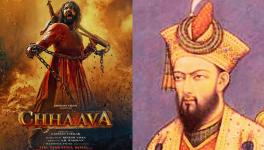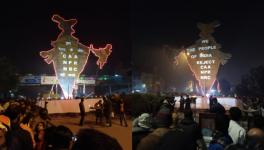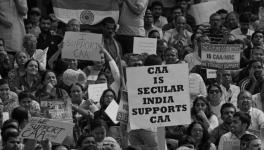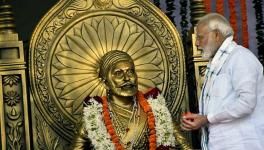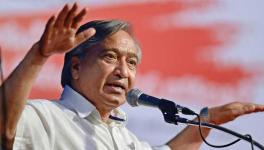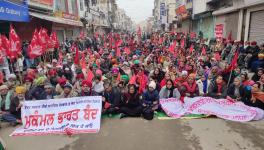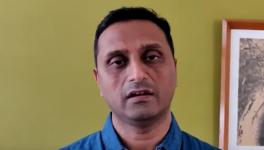Hindutva: Get Egg on Your Face and Say ‘I am Loving it’
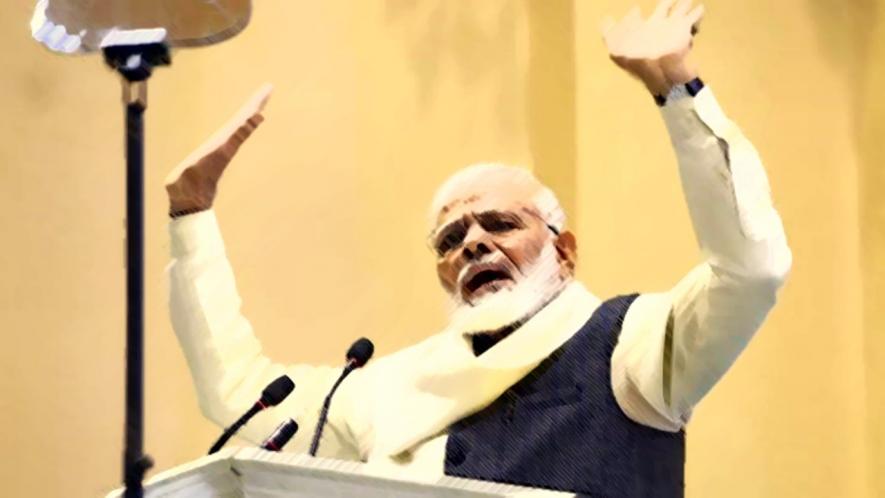
Prime Minister Narendra Modi’s attempt to further his deeply-sectarian and divisive agenda at Belur Math, global headquarters of the Ramakrishna Mission founded by Swami Vivekananda, has backfired. His controversial defence of the Citizenship Amendment Act (CAA) 2019 at the historic math in which he invoked Vivekananda himself has enraged a broad spectrum of people and formations. The CAA is, of course, the most contentious piece of legislation independent India has ever had, and it has sparked protests across the country.
What is rather noticeable is that not only the Opposition parties, but monks associated with the mission have also expressed tremendous displeasure over the political content of the PM’s speech. They have said that they found it “deeply hurtful” and they criticised it for tarnishing the “sanctity of the place”.
The very fact that Swami Suvirananda, general secretary of the Ramakrishna Math and Ramakrishna Mission, was constrained to say that “we could not have whispered into the Prime Minister’s ears to stop midway...” or his emphasising the inclusive nature of the “only organisation in the world, only order in the world” which has “monks from Hindu, Islam and Christian communities. We live like brothers of the same parents...” says something.
Nobody put it in as many words, but what perturbed people was how Narendra Modi’s speech complete erased Swami Vivekananda’s legacy. A great rift was evident between what Vivekananda had said in his historic speech at Chicago in 1892 and Modi’s espousal of a law passed by the government he heads, which creates a basis to discriminate on the basis of religion. Here is what Vivekananda had espoused before the world: “I am proud to belong to a nation which has sheltered the persecuted and refugees of all religions and all nations of the earth….”
Well, as far as close watchers of the Hindutva Right are concerned, they would underline that there was nothing unusual in Modi’s rather desperate attempts to appropriate Vivekananda and to recast him in the Hindutva mould.
Down the years, the Hindutva stalwarts have perfected the art of appropriating the legacies of even those historic figures with whom they were at loggerheads during their lifetime. For example, it has declared Mahatma Gandhi and Dr BR Ambedkar as those who are worthy or remembering every morning, or “Pratah Smarniya”. This is despite the fact that both these figures were staunch opponents of the Sangh parivar’s idea of a Hindu Rashtra.
Gandhi had characterised the RSS as a “communal body with a totalitarian outlook”. When one of his associates had praised the RSS for the work it had done at a refugee camp, Gandhi had said, “But don’t forget, even so had Hitler’s Nazis and the Fascists under Mussolini.”
Ambedkar had also told his followers, on page 358 of his Pakistan, or, The Partition of India, that if the Hindu Raj does become a fact, it will “no doubt, be the greatest calamity for this country. No matter what the Hindus say, Hinduism is a menace to liberty, equality and fraternity. On that account it is incompatible with democracy. Hindu Raj must be prevented at any cost.”
Close on the heels of this Belur Math episode, came another development which has put the BJP on the defensive again, forcing it to distance itself from a book on the Prime Minister, written by a party leader. This book was released at the Delhi office of the BJP, in the presence of senior leaders.
The said book Aaj Ke Shivaji - Narendra Modi, written by Jay Bhagwan Goyal, compares Modi with the 17th-century Maratha King Shivaji. This has so infuriated the ruling coalition in Maharashtra that the state has witnessed a surge of protests after its release. Effigies of Goyal have been burnt and demand has been raised that the BJP immediately withdraw this book. The party was forced to say that the “BJP has nothing to do with the book”. Even the author “has apologised to the people of Maharashtra and world” and has withdrawn the book.
Looking at the ongoing ferment in society against the CAA, it appears possible that mere withdrawal of a controversial book on Modi would only prove to be a temporary reprieve for the BJP.
People remember very well previous instances where the Hindutva-supremacist formation and its associates have deliberately tried to tarnish the legacy of Shivaji, supposedly to glorify their own icons. Savarkar—whom the BJP-led dispensation wants to honour with a Bharat Ratna—happens to be a prime example of this. He had started his political life as a freedom fighter, but later turned into an ideologue pushing for India to be a Hindu Rashtra. He had no qualms in sending mercy petitions to the British rulers for an early release when he was arrested. Nor was he ever self-critical of his decisions and actions, for instance, for opposing the Quit India movement. He had even led a recruitment campaign among Hindu youth to join the military during the Second World War, when the Congress party was leading an opposition against British occupation via the Quit India Movement.
History bears witness to another most reprehensible, but hardly known, aspect of Savarkar’s life. That is the way he had criticised Shivaji for his chivalry towards the daughter-in-law of the nawab of Kalyan, who had been captured and brought before him by his army. He called this act perverted virtue (Bhartiya Itihasatil Saha Soneri Paane, Chapter 4 and 5, P. 147-74).)
And questions are being raised on a broader scale now.
It is a matter of record that the Vishwa Hindu Parishad or VHP, an affiliated organisation of the RSS—when it was led by Praveen Togadia, a one-time close associate of Modi—had led an agitation seeking the demolition of Afzal Khan’s tomb, which Shivaji himself had built, near Pratapgarh Thanks to people’s intervention, this symbol of Shivaji’s greatness—which reflects in his commissioning a tomb for an adversary—remains unscathed. Shivaji believed that enmity ends with the enemy’s death. This is apparent from the fact that he had even appointed a Muslim priest to perform religious rituals.
Hindutva’s plan was to whip up pro-Hindutva emotions before the elections. Afzal Khan, a military general associated with the ruler of Bijapur, had been sent to crush Shivaji’s forces, and was felled in a duel with Shivaji.
Comrade Govind Pansare, who was assassinated by a terror module led by Hindutva fanatics has, in fact, written a book, Who Was Shivaji? exposing his increasing appropriation by reactionaries.
Will the Hindutva right learn the correct lessons from these gimmicks to increase its popularity and enhance its legitimacy? It is difficult to say. One thing is certain. With its grip on the narrative in the country loosening—thanks to the massive anti-CAA protests which engulf the nation—it is increasingly finding it difficult to set the tone. There would be more and more such moments when the BJP and Hindutva forces would find itself on the defensive after its own actions.
Recently, Vasram Sarvaiya, one of the victims of the Una flogging incident, wrote a letter to President Ram Nath Kovind, on behalf of his brother, asking him to deport them to a different country where “we won’t face discrimination”, where dalits would be considered equal citizens. Sarvaiya has said in the letter that dalits are discriminated by the Hindu community.
Is any more proof required that the BJP and Hindutva forces are being embarrassed by those very people whom they have been trying to woo, by means fair and foul.
The author is an independent journalist. The views are personal.
Get the latest reports & analysis with people's perspective on Protests, movements & deep analytical videos, discussions of the current affairs in your Telegram app. Subscribe to NewsClick's Telegram channel & get Real-Time updates on stories, as they get published on our website.









